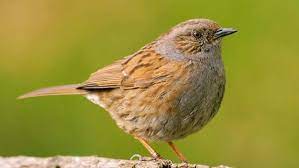Bird surveys carried out by an independent consultant every year in spring/summer and again in winter have been in place on the Streatham Campus for the last 14 years and on St Luke’s Campus for the past 9 years.
The results of the winter bird surveys on our campuses during two visits – one in November 2022 and one in January 2023 – have been received and we wanted to share the highlights.
Streatham Campus
A total of 1,212 birds were recorded during the visits, a slight increase on the total of 1,126 birds recorded in winter 2021-22.
409 of these birds are on the Red and Amber lists (38% of all birds recorded).
The the top five species recorded were:
- Wood Pigeon (Amber list bird)
- Robin (Green list bird)
- Blackbird (Green list bird)
- Blue Tit (Green list bird)
- Carrion Crow (Green list bird)
Birds of Conservation 5 (BOCC5) was published on 1st December 2021 and is the latest assessment of the status of all the bird species that regularly occur in the UK. This assessment indicates that 70 species are of the highest conservation concern and have been placed on the Red list, 103 species have been placed on the Amber list and 72 species on the Green list. The majority of the Red list species are there because of a severe decline in numbers in recent decades, their numbers remain below historical levels or are under threat of global extinction.
A total of 409 (15 species) Birds of Conservation Concern 5 (BOCC5) Red list and Amber list birds were recorded:
Red List
- Greenfinch
- Herring Gull
- House Sparrow
- Mistle Thrush
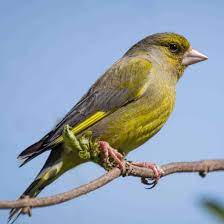
Amber List
- Bullfinch
- Dunnock
- Mallard
- Moorhen
- Redwing
- Rook
- Song Thrush
- Sparrowhawk
- Stock Dove
- Wood Pigeon
- Wren
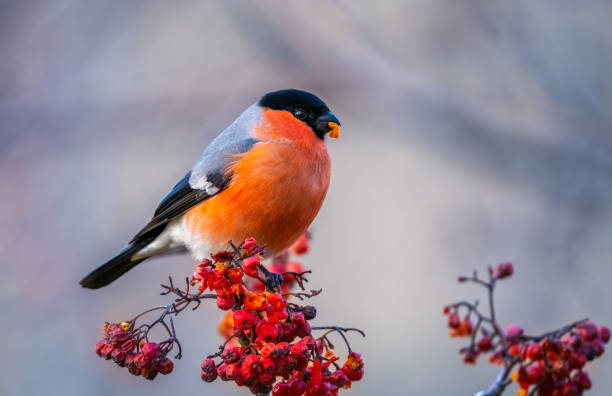
Interesting Observation
On the 19th January 2023 one of the Grounds Team’s Horticulture Apprentices, Lucy, who was helping out on this particular survey found a single Firecrest in the mixed woodland of the nature reserve, which is located behind the Sports Park. Although single Firecrests have been sighted previously on the campus, this is the first time one has been recorded during a winter survey, so can now added to the survey list as a new species.
The Firecrest is a regular passage migrant and winter visitor to the south west and is found in coniferous, deciduous and mixed woodland, often foraging with other bird species such as Goldcrests and Blue Tits.
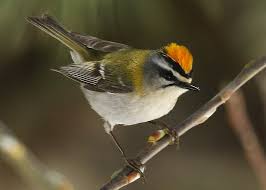
Interesting Observation
On the 3rd December 2022, a wintering Chiffchaff was located in the wooded valley just to the west of the Laver Building. Chiffchaffs regularly forage in the mild counties of South West England, where they can find enough food to sustain them through the winter months. It is likely that most of these winter birds come from Northern Europe, whilst our own breeding population set off on migration in the autumn, to spend the winter months around the Mediterranean region and North Africa.
The Chiffchaff is one of the earliest spring migrants, with the first birds arriving in the first few days of March. The Chiffchaff is a regular breeding species on the campus, with up to 20 pairs recorded in any one breeding season.
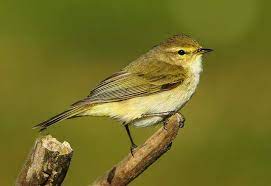
St Luke’s Campus
A total of 234 birds were recorded during the visits.
144 of these birds are on the Red and Amber lists (62% of all birds recorded).
The top three species recorded were:
- Wood Pigeon (Amber list bird)
- House Sparrow (Red list bird)
- Herring Gull (Red list bird
Birds of Conservation 5 (BOCC5) was published on 1st December 2021 and is the latest assessment of the status of all the bird species that regularly occur in the UK. This assessment indicates that 70 species are of the highest conservation concern and have been placed on the Red list, 103 species have been placed on the Amber list and 72 species on the Green list. The majority of the Red list species are there because of a severe decline in numbers in recent decades, their numbers remain below historical levels or are under threat of global extinction.
A total of 144 birds (9 species) Birds of Conservation Concern 5 (BOCC5) Red list and Amber list birds were recorded:
Red List
- Herring Gull
- House Sparrow
- Mistle Thrush
- Starling
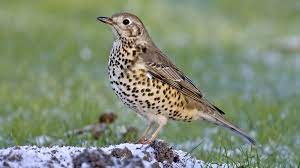
Amber List
- Dunnock
- Redwing
- Song Thrush
- Wood Pigeon
- Wren
